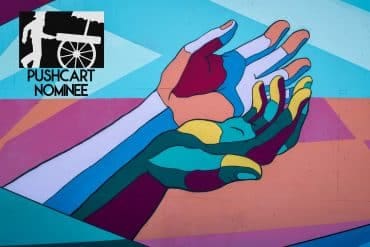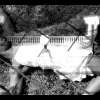
Pinkie Points It Out: My Weird Depression Looks Kinda Dope!
My depression showed up this summer like “hey sis!” And I was like “fuck my life”!
I wasn’t ready. Normally, I would’ve told it to come on in and have several seats. Like old acquaintances.
But not this time.
This time, it caught me off guard. The thing I hate the most about it is that it will let me believe that I am not depressed. That’s because my depression looks kinda dope!
It looks like waking my kids up with a smile and a kiss. I once heard Toni Morrison tell Oprah that that’s the ultimate joy you can bring to a kid’s life—to walk in a room and smile at them. I, an avid reader, took this suggestion personally. It’s Toni Morrison, after all.
It looks like running three miles a day and unwinding with daily yoga sessions. And it looks like reading my favorite fiction books and binge watching my favorite Netflix shows. It looks like going to the beach and letting the waves wash my feet as I walk along the shore. And it looks like taking boat rides up the Hudson River while sipping mimosas. This is some real picturesque shit! It could go on a postcard! Or at least on Instagram.
Yet my depression does not give two fucks that I do all of this!
It doesn’t care that I eat well (I’m vegan, so that might be debatable). It doesn’t care that I exercise. That I rest. That I meditate. That I am constantly reading self-help books—Oprah recommended books no less! Spiritual teacher, Eckhart Tolle, would likely say that I am depressed because I am living in the past, that I am not present. But Tolle, trust me, my present moment is fucked up!
Why, you ask? I know you might not like or believe my response, but it’s the truth: I. Do. Not. Know.
And I’m okay with that. There has to be room for that—the not knowing. We should try that more often—going through life not knowing some shit and being comfortable with it. We live in an age where we want quick answers to everything, sometimes demanding explanations to shit that just ain’t any of our business (hint: Carlee Russell case here. I’m willing to bet that there is more outrage that she was found alive than had she been found murdered). But that’s neither here nor there. What is here is my depression. In full form. Yet, it won’t last forever. I usually cycle through emotions that match the season.
So, by the time Fall rolls in, I’ll be biding adieu to my depression in the not so nice words of “Fuck You Very Much. See you next time.”
Credits
Image of depressed woman by 1388843 from Pixabay
Learn More
New to autoethnography? Visit What Is Autoethnography? How Can I Learn More? to learn about autoethnographic writing and expressive arts. Interested in contributing? Then, view our editorial board’s What Do Editors Look for When Reviewing Evocative Autoethnographic Work?. Accordingly, check out our Submissions page. View Our Team in order to learn about our editorial board. Please see our Work with Us page to learn about volunteering at The AutoEthnographer. Visit Scholarships to learn about our annual student scholarship competition.
Dr. Renata Ferdinand is Professor and Chair of the Department of African American Studies at New York City College of Technology in Brooklyn, NY. She writes autoethnographies that explore the complexities of the lived experiences of Black women and girls, from how race and gender impact experiences within the healthcare system to colorism, racial stereotypes, and Black women’s identity. Her work has been featured in several outlets, including Cultural Studies + Critical Methodologies, Journal of Health Psychology, The Popular Culture Studies Journal, to name a few,and within several edited volumes, including International Perspectives of Autoethnographic Research and Practice, Blacklove: The Intimacies and Intricacies of Romantic Love in Black Relationships, and Space and Culture: The Journal. She has given several talks on Black Motherhood Studies and Black Girlhood Studies and was recently featured as a literary expert for the article, “Reblazing Saddles: Who Shapes the Wild West Lit Canon?” for Bitch: Feminist Response to Pop Culture. She is the recipient of the 2018 Ellis-Bochner Autoethnography and Personal Narrative Research Award from The Society for the Study of Symbolic Interaction (SSSI) of the National Communication Association for best published essay. She serves as an expert reviewer for several publications and is currently an editorial board member of the Journal of Autoethnography. Her book, An Autoethnography of African American Motherhood: Things I Tell My Daughter is newly released (Routledge, 2021).














